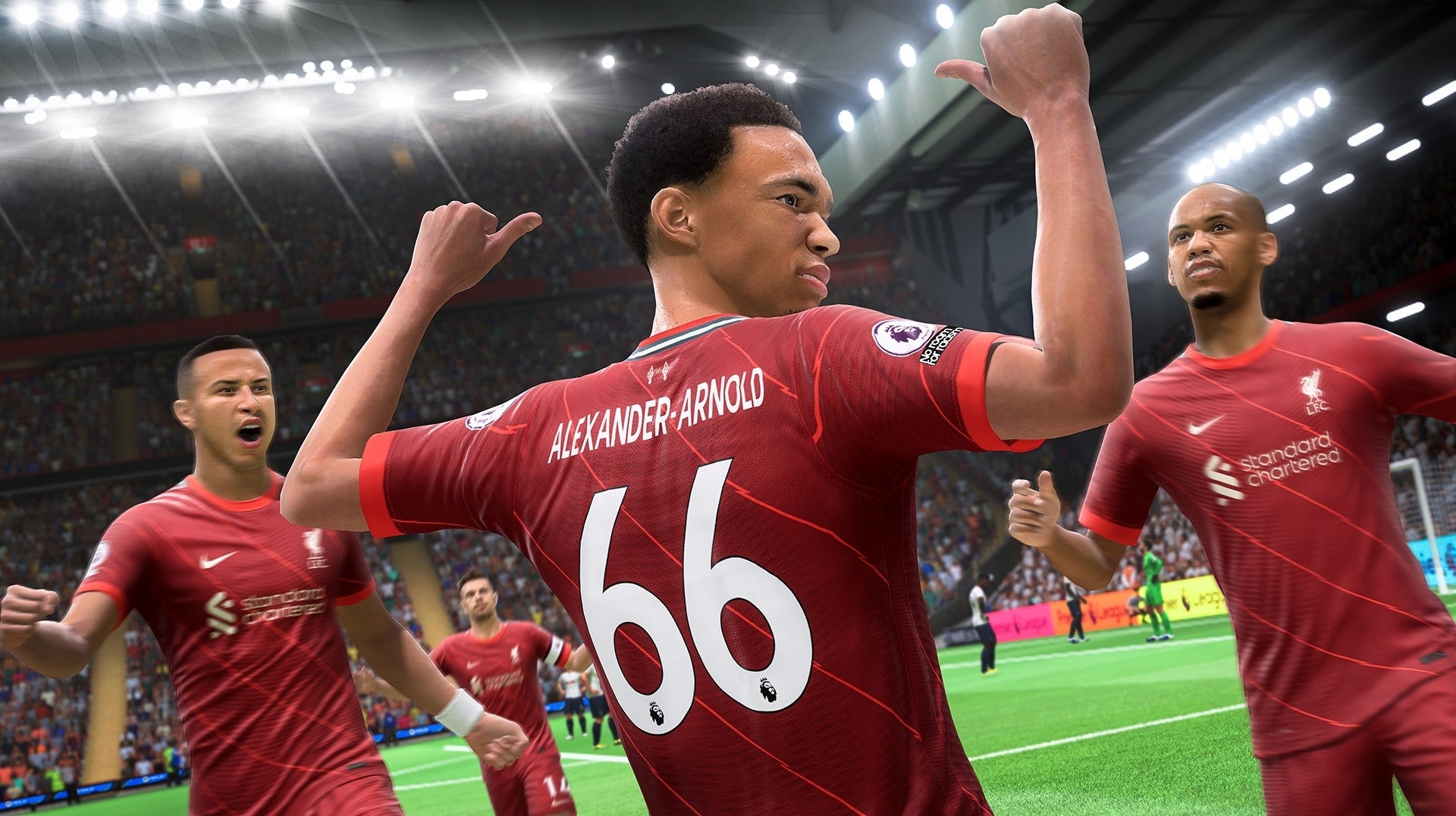FIFA 22 is out in the wild, and in gameplay terms it’s going down well. But, as anyone who’s read Eurogamer’s review will know, we still have a few problems with how it’s monetised. Specifically, the hugely-popular Ultimate Team mode and its controversial loot boxes.
Ultimate Team, which drives hundreds of millions of dollars in revenue for publisher and developer EA each year, revolves around the idea of building a squad of players, which you then use to play in matches, both offline and online.
There are a number of ways you can obtain players in the game, but one of the main methods is through packs of virtual cards. These card packs contain a random assortment of items, including players of varying potency you then use out on the pitch. Generally, the better the player, the lower your chance of obtaining them from a pack. Although they’re not described as such in-game, Ultimate Team’s card packs are loot boxes.
You can buy these card packs with either a virtual currency called FUT Coins, which is earned primarily through gameplay, or with a virtual currency called FIFA Coins, which is bought with real-world money.
It’s this real-world money aspect of Ultimate Team’s loot boxes – and the fact the loot boxes contain gameplay-affecting items – that has caused so much controversy for the mode and EA over the years.
But EA’s loot box controversy is not the exclusive preserve of FIFA. It was loot boxes that caused EA to hit the mainstream headlines back in 2017 with Star Wars Battlefront 2, a game that was mauled online for a system players said took advantage of them. Facing a vociferous backlash, EA changed Battlefront 2’s loot box system, with executive Patrick Söderlund admitting at the time the company had “got it wrong”. Söderlund also promised future EA games would learn from the company’s mistakes.
